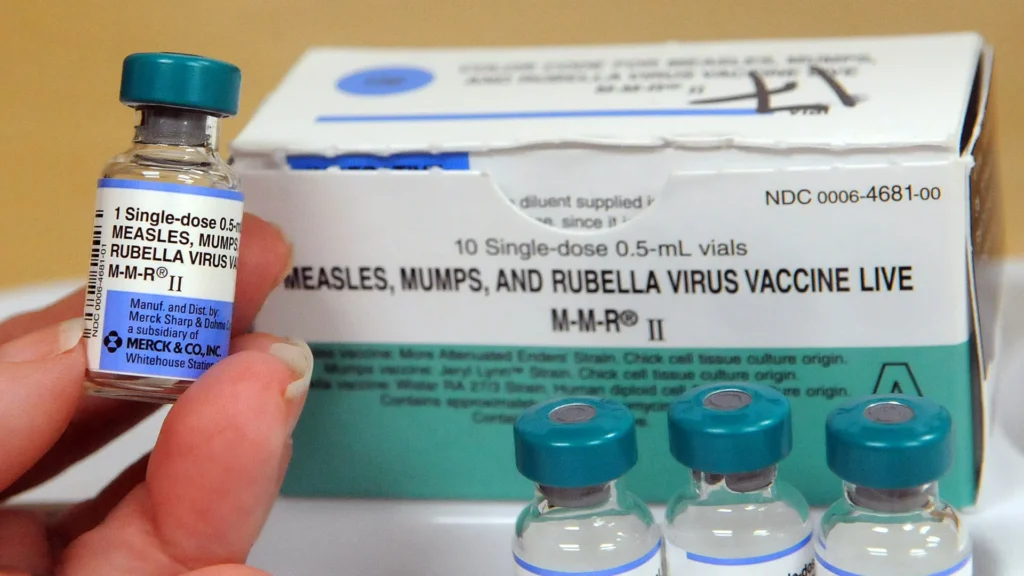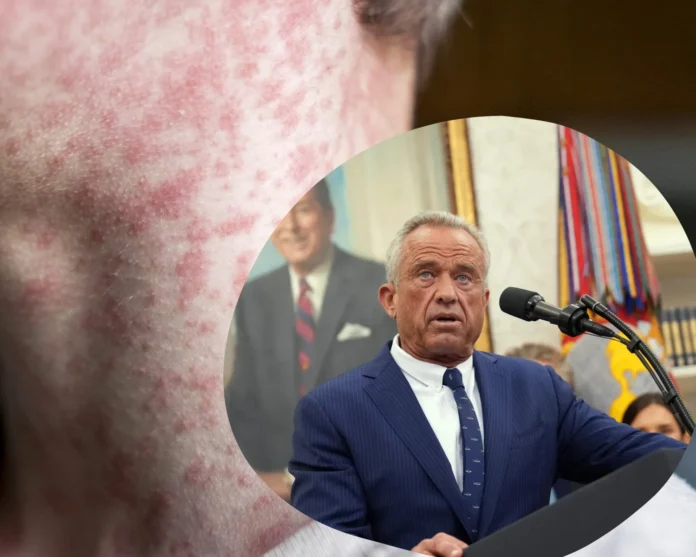A Rising Concern: Measles outbreak in Texas
Health authorities have raised alarms over a rapidly escalating measles outbreak in Texas. The Texas Department of State Health Services (DSHS) has confirmed 146 cases since late January 2025, predominantly in the South Plains region. Unfortunately, this outbreak has also resulted in a tragic fatality—the first measles-related death in the U.S. in over a decade.
Understanding Measles and Its Risks
Measles, a highly contagious respiratory illness, spreads through direct contact with infectious droplets when an infected person coughs, sneezes, or even breathes. Early symptoms typically include a high fever, cough, runny nose, and red, watery eyes, later progressing into a distinct body rash. While many cases remain mild, severe complications such as pneumonia, blindness, and encephalitis can occur.
Historically, measles affected nearly every child in the U.S. before the introduction of the vaccine in the 1960s. Between 1953 and 1962, an average of 530,217 confirmed cases and 440 deaths were reported annually, with a case fatality rate of 1 in 1,205 cases.
Current Statistics: Who Is Affected?
The outbreak has disproportionately impacted children, with 116 out of 146 cases involving individuals under 18. Health officials report that among those diagnosed:
- 79 individuals had not received the measles, mumps, and rubella (MMR) vaccine.
- 62 cases involved individuals with an unknown vaccination status.
- At least 5 affected individuals had received the MMR vaccine.
Government Response: Measures to Contain the Outbreak
In response to the crisis, federal and state agencies have mobilized resources to curb further spread. The Centers for Disease Control and Prevention (CDC) and the Administration for Strategic Preparedness and Response (ASPR) are working closely with Texas health authorities to provide technical assistance, laboratory support, vaccines, and therapeutic medications as needed. Ongoing communication ensures a coordinated effort to manage and mitigate the outbreak.
Government officials have pledged full support to Texas, reinforcing the importance of a swift and effective response. Additionally, bereaved families affected by the outbreak have received direct outreach and support.
The Role of Vaccination in Prevention

Vaccination remains a critical tool in the fight against measles. Not only does it protect individuals from contracting the virus, but it also strengthens community immunity—shielding those who cannot be vaccinated due to medical reasons. Parents are encouraged to consult healthcare providers to explore available vaccination options and ensure their children are protected.
Supporting Public Health: A Collective Responsibility
Beyond vaccines, proper nutrition plays a role in overall immune defense. Historical data indicates that improved sanitation and nutrition significantly reduced measles-related fatalities before the vaccine’s introduction. A well-balanced diet rich in vitamins A, C, D, B12, and E can enhance immune function and improve resistance to infections.
Additionally, public health officials emphasize the importance of combating misinformation regarding vaccine safety and efficacy. Engaging with communities, addressing concerns through culturally competent education, and ensuring vaccine accessibility are crucial steps in building trust and encouraging widespread immunization.
Healthcare Professionals: The Frontline Heroes
Medical professionals working tirelessly to contain the outbreak deserve unwavering support. Their dedication in treating affected individuals and implementing preventive measures is commendable. Ensuring they have adequate resources remains a top priority to sustain an effective healthcare response.
A Call to Action: Protecting Public Health
The Texas measles outbreak serves as a stark reminder of the importance of proactive public health measures. Collaboration among parents, healthcare providers, community leaders, and government agencies remains essential to preventing future outbreaks. By prioritizing transparency, education, and vaccination efforts, public health agencies can work toward restoring trust and safeguarding communities.
For up-to-date information about measles and vaccination guidelines, visit the official CDC website or contact your local health department.


